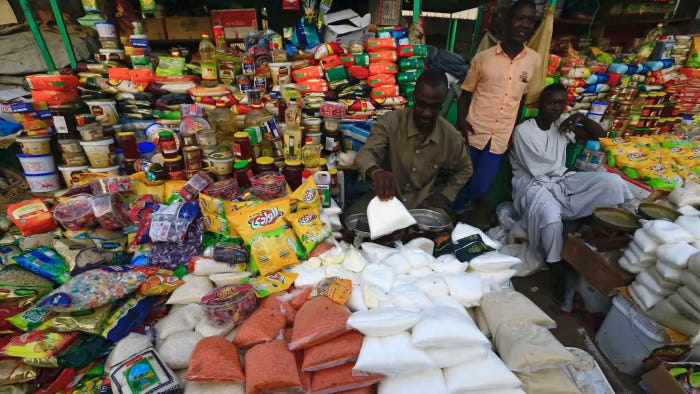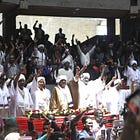How the SAF’s Tenuous Hold on Khartoum Reshapes Sudan’s Political Economy
Non-Western alignment represents a sanction evasion lifeline for the war-torn economy.
After years of brutal civil war between the Sudanese Armed Forces and the Rapid Support Forces (RSF), the de facto government has gained a firm grip on Khartoum, most recently with the takeover of the presidential palace and Khartoum airport. The development carries far-reaching implications for the future of Sudan’s political economy and the wider region, as the capital has traditionally been the focal point of the country’s wealth. Specifically, it signals a post-Emirati pivot for the North African country and a potential divorce from the Abraham Market.
Economic Split
Gaining control of Khartoum means gaining access to the country’s formal economy, as the major financial institutions, including the central bank, are located there. This opens the way for the Burhan-led government to receive humanitarian aid and foreign assistance. It could also allow for Khartoum to double down on recent deals with Russia and Iran to get closer to BRICS; closer relations with non-western aligned countries would represent a sanction evasion lifeline for the war-torn economy.
However, it may further isolate the governing body from key peripheral regions, such as Darfur, where the RSF continues to control valuable natural resources, namely gold. Sudan’s abundance of natural resources has created an informal economy crucial in initiating, fuelling, and sustaining the conflict, as well as internationalising it. The United Arab Emirates has been the biggest beneficiary of this through gold smuggling, with UN reports estimating that the overwhelming majority of Sudan’s gold exports -over 90%- ended up in Dubai, contributing to its nickname 'the city of gold.'
Return to Islamism
Politically, the Sudanese government is likely to reignite its relationship with the ‘Axis of Resistance’ (AoR), building on the Islamist support characteristic of the Omar al-Bashir era. Under Bashir, Sudan provided political and military support to Hamas, reportedly allowing Iran to transfer arms through the Sinai.
This potential turnaround would mark a stark shift from their Abraham Accords-era normalisation agreement with Israel. Although the progress was stalled by the ensuing civil war, it was Burhan himself who oversaw the historic process. The move towards normalisation was attributed to Sudan's severing of its relations with Iran over a decade ago. However, with Iran's consistent support for the SAF, these relations are now bearing fruit. Last summer, the two countries re-established ties, and most recently, this was reflected in the signing of investment and coordination agreements.
The UAE has accelerated its counter efforts, by sponsoring the recent RSF-led coalition of opposition groups. The groups signed a charter in Nairobi calling for the creation of a rival government, on an anti-Islamist platform.
Room for Competition
Throughout the nearly two-year-long war, the United States maintained an ambiguous position vis-à-vis the warring factions. As the Biden administration was preparing to leave office in January, Washington imposed back-to-back sanctions on both SAF General Abdel Fattah al-Burhan and RSF commander Mohammad Hamdan Daglo, also known as Hemedti. This ambiguity allows the US to capitalise on either group's victory.
Moreover, with Russia’s recent success in Port Sudan and the finalisation of an agreement allowing the establishment of a Russian naval base in the eastern part of the country, the US is expected to make further concessions to the de facto government in Khartoum. Countering Russian influence in the Red Sea is important, but it has become even more pressing now, as Moscow is slowly regaining a foothold in Syria, where Arctic oil is being imported amid debilitating sanctions.




